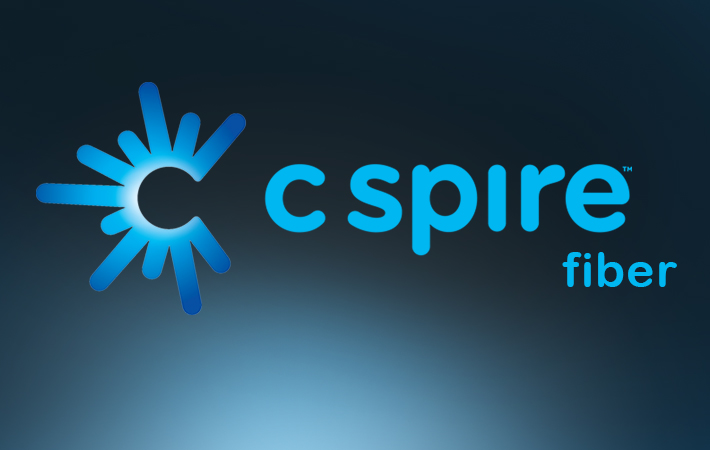 April 6, 2015 (Jackson) - Belhaven University has signed an agreement with C Spire to become the first college in Mississippi to offer students Gigabit Internet access and related SuperTM HD television service.
April 6, 2015 (Jackson) - Belhaven University has signed an agreement with C Spire to become the first college in Mississippi to offer students Gigabit Internet access and related SuperTM HD television service.
The agreement was announced Monday by university officials and C Spire representatives and will also provide wireless phones, voice over IP phone service and dedicated high-speed fiber optic Internet access to the 400 full-time faculty and administration on the 50-acre campus in northeast Jackson.
All 700 residential Belhaven students living in the University's six residence halls will receive the next generation services, which include 1 Gbps (Gigabit per second) broadband Internet access up to 6.5 times faster than the speediest broadband connections on most U.S. college campuses today and super HD TV service with dedicated DVRs in each residence hall room.
“Only a handful of other universities in the country have Internet speeds even close to what C Spire will be providing on our campus,” said Belhaven University President Dr. Roger Parrott. “We're charting new territory for higher education with super robust access that will help us improve high-performance teamwork, teaching, learning, research and scholarship at our school.”
A 2014 analysis by Valore Books, a college textbook reseller, and Testmy.net, a data speed testing service, of the top 100 colleges in the U.S. with the fastest Internet access placed Lamar State College in Port Arthur, Texas in the No. 1 spot with download speeds averaging 154.8 Mbps (Megabits per second) and upload speeds of 47.8 Mbps. In contrast, Belhaven students will have download and upload speeds of up to 1,000 Mbps.
Faster Internet connections have grown in importance in recent years on college campuses across the nation. The average student now owns seven Internet-connected devices, including phones, computers, gaming consoles, streaming TV boxes, printers, tablets and e-readers and uses them over 125 hours each week, according to a 2014 nationwide online survey of 1,209 students between the ages of 18 and 34 by Crux Research and re:fuel agency, a New York-based marketing firm.
Students have replaced cumbersome backpacks laden with heavy books and now are more likely to bring lightweight iPads, tablets or laptops to class, purchase e-textbooks, participate in Skype study groups or post their homework to online services such as Blackboard, according to Brian Caraway, senior vice president of Enterprise Markets for C Spire. In fact, Caraway said a 2014 study by Presta Electronics found that 73 percent of students need technology to study and over 70 percent use a computer or tablet to take notes.
“As student demand for total access grows and technology is more deeply ingrained into their daily lives, colleges need to stay ahead of the curve with ultra-fast, high quality Internet solutions,” Caraway added. “Belhaven is clearly setting the pace for institutions of higher learning across the country."
Belhaven's move comes as C Spire and the city of Jackson continue to make steady progress in qualifying homeowners in more areas of Mississippi's largest city and state capital for the next-generation suite of services and super-fast Internet technology infrastructure.
Thus far, five of 13 areas - or fiberhoods - in the city have reached their pre-registration targets and are moving into the engineering and construction phases of the massive fiber optic infrastructure technology initiative. Commercial service is expected to be available later this year in most areas.
C Spire is continuing to work with the city to provide free Gigabit Internet access at two municipal community centers to help Jackson residents learn more about the benefits of 100 times faster fiber-based broadband Internet access and related services.
“This can be a major economic development tool moving forward because we'll have the infrastructure at our university and in other parts of the city,” said Parrott, who is the longest serving university president in the state. “It will help more of our graduates stay here or even start their own high-tech businesses. There's no doubt that access to high-speed bandwidth and the latest technology will create an environment where more good paying jobs exist and more talented people want to live here.”
###
